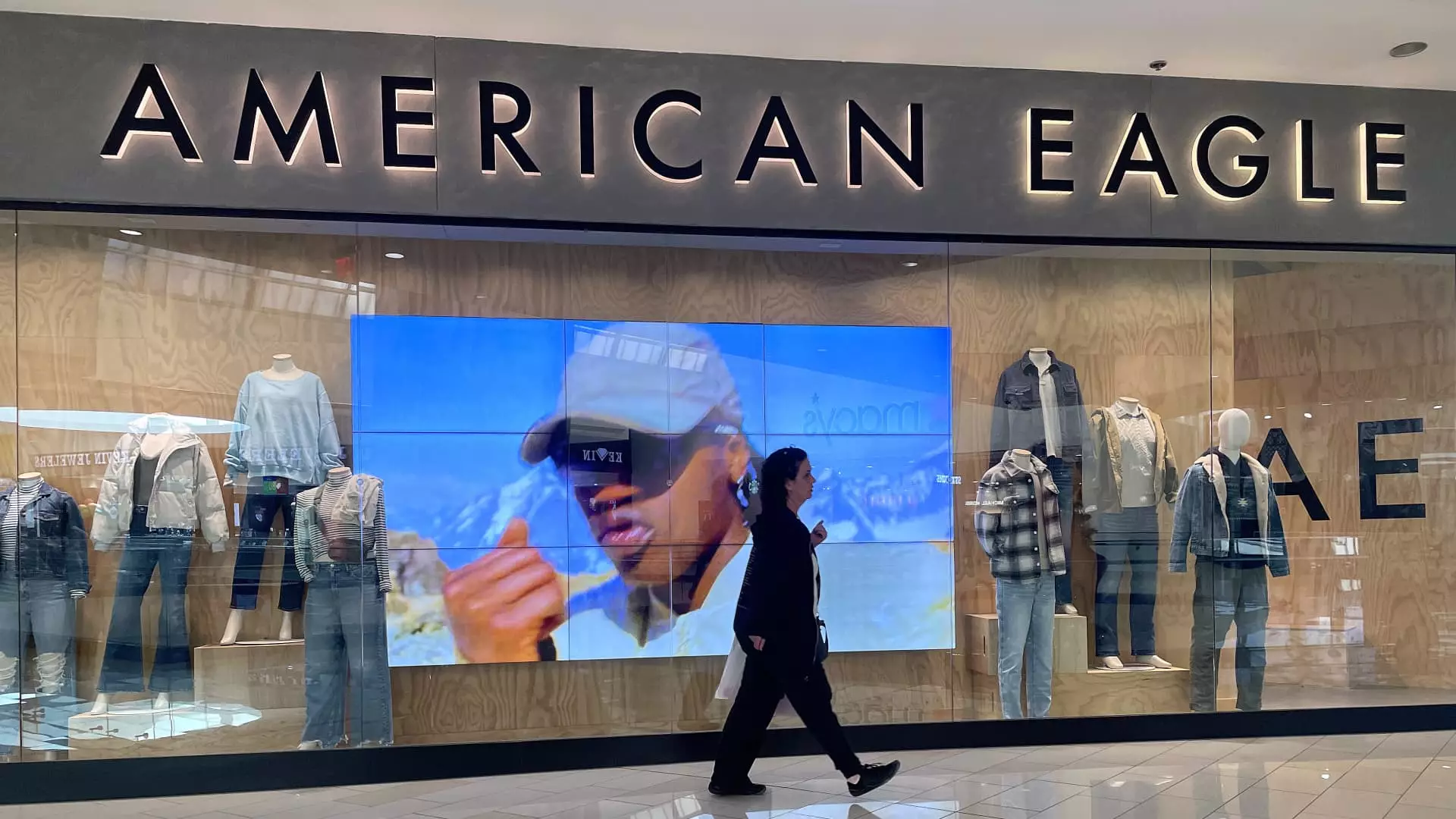In a significant legal development, American Eagle Outfitters has initiated a lawsuit against Amazon, alleging trademark infringement that could reshape the dynamics of online retail. The heart of the complaint centers around the misuse of American Eagle’s Aerie and Offline by Aerie trademarks, which the company claims has resulted in consumer confusion and the proliferation of inferior imitation products. Filed in the U.S. District Court for the Southern District of New York, the lawsuit accuses Amazon of exploiting the Aerie brand to drive traffic to its platform while offering products that do not meet the brand’s quality standards. This case exemplifies the ongoing challenges that brands face in protecting their intellectual property in the increasingly complex online marketplace.
American Eagle argues that Amazon has engaged in “flagrant, unauthorized use” of its trademarks. The company claims that consumers searching for Aerie products on Google are directed to Amazon’s site, which prominently displays presumably counterfeit merchandise mislabelled with misspellings of its trademarks, such as “Aeries” and “Arie.” This tactic, according to American Eagle, misleads customers into believing they are purchasing authentic Aerie merchandise. The lawsuit highlights the confusion created by these advertisements, which purportedly invite shoppers to “Shop Aerie” or “Save on Offline by Aerie.” American Eagle contends that these claims are unequivocally false, as genuine Aerie products are not available for purchase on Amazon.
The situation underscores a contentious issue pervasive in e-commerce—trademark infringement and brand protection. American Eagle’s complaint is not an isolated incident; it reflects a broader pattern where well-established brands struggle against unauthorized sellers on major online platforms. The retail landscape has shifted dramatically over the past two decades, with third-party sellers gaining a significant foothold in marketplaces like Amazon. In response to similar complaints in the past, Amazon has made attempts to refine its policies on counterfeit products, but criticisms persist. For instance, Aerie’s case finds echoes in previous complaints from brands like Birkenstock and Daimler AG, who also faced challenges with counterfeit products listed by third-party sellers.
American Eagle’s legal action can be seen as a strategic move to reclaim its brand integrity in a digital world where third-party sales often muddy the distinction between authentic and counterfeit goods. The online marketplace, heralded for its convenience, presents challenges regarding quality assurance and brand authenticity, raising serious questions about consumer trust. As brands continue to grapple with these challenges, the importance of trademark protection cannot be overstated. Companies like American Eagle must remain vigilant, employing legal avenues to combat against dilution of their brand equity in the face of expansive online offerings.
The outcome of this lawsuit could have far-reaching implications, not only for American Eagle and Amazon, but also for the e-commerce industry as a whole. A favorable ruling for American Eagle may empower other brands facing similar challenges, while concurrently placing heightened scrutiny on marketplace giants like Amazon. If the courts side with American Eagle, it may lead to stricter regulations on how third-party sellers can list merchandise on major platforms, potentially transforming the operational framework that allows for the sale of goods in an online marketplace. This may result in greater accountability for e-commerce platforms to monitor their vendors and uphold the authenticity of the products sold under well-known trademarks.
American Eagle’s lawsuit against Amazon serves as a stark reminder of the complexities surrounding trademark infringement in today’s digital age. While technology and e-commerce expand opportunities for brands to reach consumers, it simultaneously complicates the challenge of ensuring product authenticity. The case may pave the way for continued dialogue around trademark protection and the responsibilities that online platforms hold in safeguarding brands from counterfeit threats. As this legal battle unfolds, it will be essential to watch how it influences the broader landscape of e-commerce and the ongoing quest for consumer trust and brand integrity in a revolutionized retail environment.

